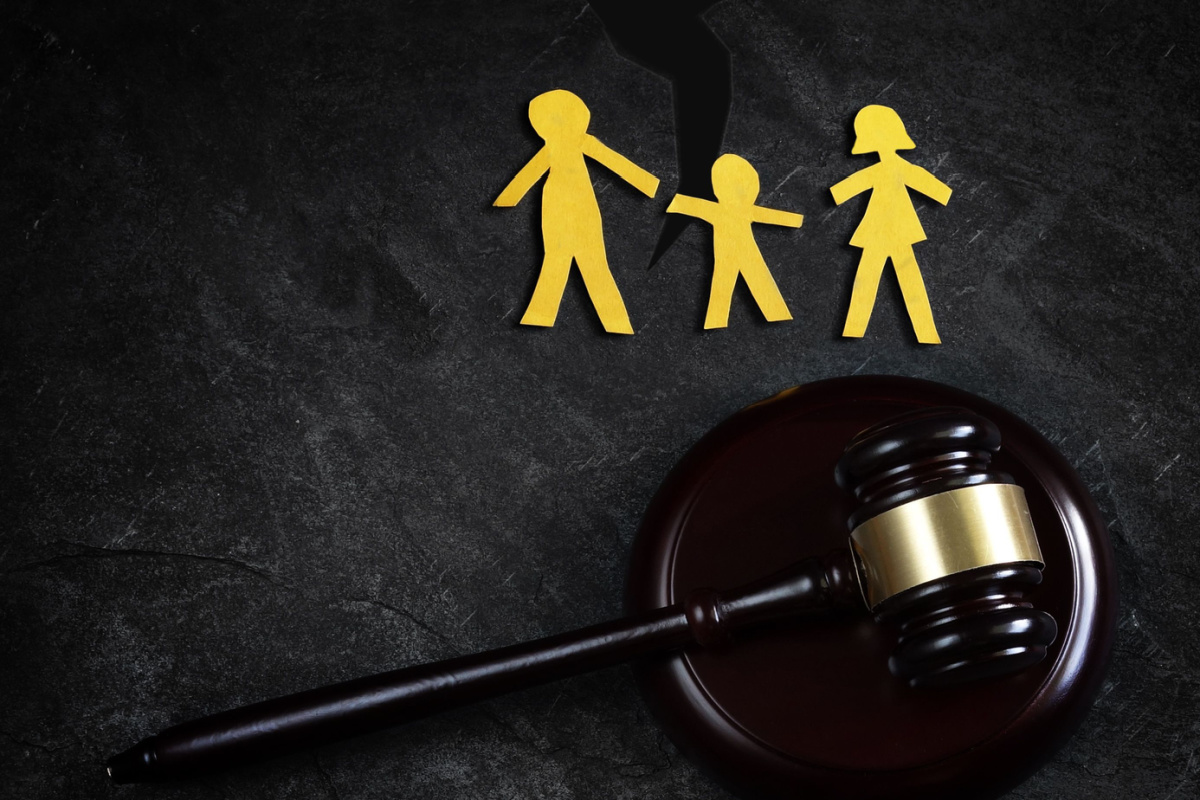What Factors Can Affect Your Child Custody Agreement?

In child custody cases, the courts have an obligation to place the children in the best environment possible. To make these decisions, they must weigh many factors, especially when domestic abuse occurs.
For example, in the case of Celia S. v. Hugo H., the court issued a restraining order to protect the mother from the father but, at the same time, issued an order granting a 50% visitation timeshare of the children to both parents. The order called for the arrangement of sole custody to the mother and visitation for the father. Was this the best decision for the children or even a legal one?
Find out the difference between physical and legal custody, sole and joint custody, and the factors the judicial system is legally bound to consider when deciding on child custody agreements.
What is the Difference Between Physical and Legal Custody?
Parents who make the health care, education, and welfare decisions for their children are the ones who have legal custody. The parents who have the children live with them have physical custody. Both responsibilities can be allocated to one or both parents, granting sole or joint custody.
Both parents can have joint legal and physical responsibilities. However, a judge can decide whether one parent would be suited to have legal or physical custody over another based on several factors, including:
- What is in the best interest of the child?
- How involved are the parents in the child’s life?
- How are the relationships between the two parents?
- Are there any special circumstances that may have to be factored in?
Adhering to the Best Interests of the Child Standard
The child’s best interest is probably the most crucial factor in forming child custody agreements, and the guidelines to make that determination are outlined in Ca. Fam. Code § 3011. The courts deem the child’s health, safety, and welfare a top priority when deciding what’s in the child’s best interest. The factors that will determine what is best for the child include:
- If there has been a history of abuse either between the parents or between a parent and the children
- If a current spouse or cohabitant of a parent has a history of abuse
- If there has been habitual or continual use of controlled substances, alcohol, or prescribed controlled substances by either parent
For example, in cases where domestic violence acts have been committed between the parents within the previous five years, regardless of when a restraining order has expired, the courts must not award sole or joint custody of a child to the offending parent. According to Ca. Fam. Code § 3044, the only exception is if the alleged offender can prove by a preponderance of the evidence that it will be in the child’s best interest to award custody.
If the court then grants an order for sole custody, joint custody, or unsupervised visitation to the alleged abuser, according to Ca. Fam. Code § 3011, the court has to state in writing or on the record why the judge granted custody or visitation to the offending party if both parties did not agree on a custody or visitation arrangement.
In the case of Celia S. v. Hugo H., the 50% visitation timeshare order was appealed because the appellate lawsuit claimed the 50% visitation timeshare order was actually joint custody and that Ca. Fam. Code § 3044 and Ca. Fam. Code § 3011.a.5(A) was not followed when the offending parent’s visitation or joint custody order was granted. The appeal was reversed and remanded for further proceedings to decide the new custody arrangement of the children.
Parental Involvement
In child custody agreements, the emotional ties between the parents and the child and the ability of the parents to take care of the child are also considered. The closeness of a parent to a child is essential in granting legal custody because the parent whose emotional ties and ability to take care of the child are more significant than the other parent will be able to make the best decisions about the child’s health care, education, and welfare needs.
Parent involvement can also affect a physical custody agreement, especially if the parent travels a great deal. In this case, the judge would probably offset the physical custody percentage according to the parent’s availability.
The Relationship Between the Parents
If the parents have an amicable relationship and can decide on legal custody responsibilities together, this is a strong argument for joint legal custody. Also, a strong, united team can possibly agree on a custody agreement themselves without the court’s interference.
If the relationship is contentious, this is not a situation where joint legal custody would be productive.
Special Circumstances
Sometimes, it may not be easy to discern which parent may be the better choice when deciding the child’s best interests. For example, special circumstances can occur in neglect, abuse or addiction cases. So the courts can appoint an attorney to represent the child.
The attorney will collect information, such as physiological or psychological tests. Interviews and testimony from people close to the family will be considered, along with the child’s testimony, if the child is mature enough to have an informed opinion.
The Preference of the Child is a Recent Factor of Consideration

A reasonably new law has been passed in California recently regarding child custody. Ca. Fam. Code § 3042 now requires the family courts to consider the wishes of a child or children when deciding on child custody cases. If a child is 14 or older and wishes to express their opinion on their preference of custody and visitation, they can now do so, and the court must weigh the preference seriously. Children under 14 years can also express their preferences only if it is in the child’s best interest for the court to hear the preferred custody arrangement.
However, the judicial system can not decide on child custody based on the child’s preference alone. Before deciding on the best custody arrangement, the judge must also weigh the other factors mentioned.
If you are dealing with a child custody case, contact us online or by calling 949-438-3886.

